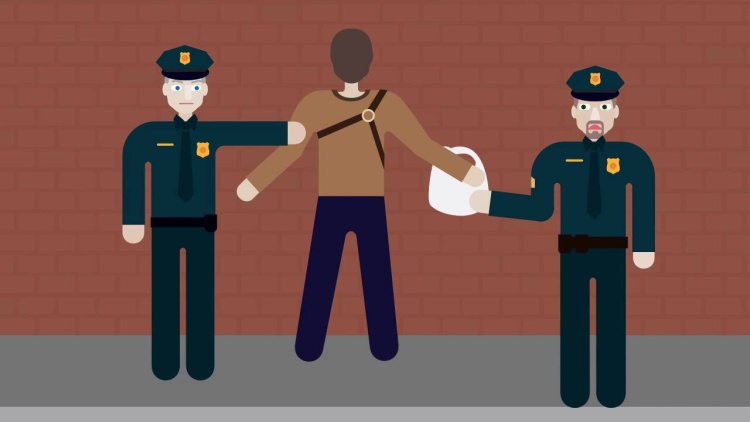Illinois v. Wardlow
United States Supreme Court
528 U.S. 119, 120 S. Ct. 673, 145 L. Ed. 2d 570 (2000)
- Written by Sarah Venti, JD
Facts
Riding in four separate cars, police officers entered a high-drug area of the city to investigate drug transactions. The officers in the last car of the caravan witnessed Wardlow (defendant) standing by a building holding an opaque bag. Wardlow looked at the car and began running away, and the officers in the last car gave chase and caught him. One of the officers immediately conducted a patdown to search for weapons. The officer felt something that seemed to be a weapon, and when he removed it he discovered it was a handgun. Wardlow was arrested for unlawful use of a weapon by a felon. The trial court held that the stop-and-frisk was lawful and allowed the gun to be introduced as evidence at trial. The court of appeals reversed Wardlow’s conviction, holding that the police had no reasonable suspicion to search Wardlow and the gun should have been suppressed. The state supreme court affirmed the court of appeals’ ruling and held that flight, even in a high-crime area, does not amount to reasonable suspicion because it may be interpreted as an exercise of a citizen’s right to refuse to answer police questions when stopped on the street. The United States Supreme Court granted certiorari.
Rule of Law
Issue
Holding and Reasoning (Rehnquist, C.J.)
Concurrence/Dissent (Stevens, J.)
What to do next…
Here's why 907,000 law students have relied on our case briefs:
- Written by law professors and practitioners, not other law students. 47,100 briefs, keyed to 996 casebooks. Top-notch customer support.
- The right amount of information, includes the facts, issues, rule of law, holding and reasoning, and any concurrences and dissents.
- Access in your classes, works on your mobile and tablet. Massive library of related video lessons and high quality multiple-choice questions.
- Easy to use, uniform format for every case brief. Written in plain English, not in legalese. Our briefs summarize and simplify; they don’t just repeat the court’s language.





